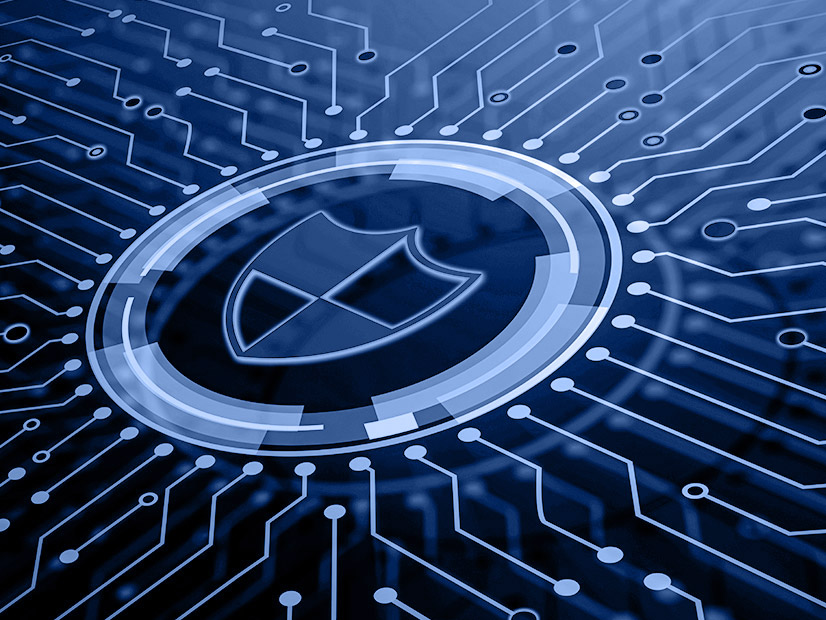Cybersecurity Update
PJM Chief Information Security Officer Steve McElwee briefed the Operating Committee last week, saying that cyberattacks against the U.S. and its allies remain a principal concern. Although attacks from Russia and associated entities have declined, Iran has been increasing its offensives, he said.
Among the major forms of attack seen recently are ransomware, which encrypt a computer and lock users out of data and functionality, and distributed denial of service attacks, essentially bombarding a server with requests to overwhelm a network.
PJM has been hardening its systems by retiring weak encryption tools, blocking international and anonymous traffic and prioritizing external vulnerability remediation, McElwee said.
Committee Endorses Maximum Emergency Package
The committee overwhelmingly endorsed a package from PJM addressing the supply chain for generators and concerns regarding the impact of increased environmental restrictions on maximum emergency generation actions. The PJM option received 92% support over a second package from the Independent Market Monitor, which would have added clarifications and changed references to “fuel” to “fuel and consumables.”
The IMM proposal also would have allowed for resources with less than 10 days of fuel and consumables inventory to be made unavailable for economic dispatch, with a penalty equal to the daily capacity values.
Renewable Dispatch Proposal Vote Delayed
The OC agreed to postpone voting on a joint PJM/Monitor proposal intended improve the dispatch of renewable generators after several stakeholders expressed concern about certain elements.
The proposal would require intermittent resources with capacity commitments to offer economic maximum megawatts equal to or greater than their hourly forecast. Several stakeholders said this could result in renewable output being held back by an under-forecasted value being used.
Other stakeholders were concerned about the elimination of the curtailment flag, which PJM uses to indicate to generation operators that their units have been curtailed and that they should adjust their output accordingly. The proposal would instead use existing basepoints to reflect the RTO’s desired dispatch.
Several committee members said they did not share these concerns but that they would not oppose delaying a vote to address them.
PJM staff agreed to send the proposal back to the DER & Inverter-Based Resources Subcommittee for work and bring it back to the committee for a vote at its meeting next month. They said a one-month delay on approval would still allow for implementation before the second quarter of 2023.
Delays to Scheduled Go-live Date for PPL DLR
The scheduled go-live date for PPL’s dynamic line ratings has been moved out by two weeks, with implementation now slated for Sept. 27 for the day-ahead market and Sept. 28 for real-time. PPL had already delayed rollout from July to this week because additional work was needed for changes to its energy management system with its vendor. (See “PPL Delays DLR Implementation to September,” PJM Operating Committee Briefs: July 14, 2022.)
Review of IROL-CIP Solution Postponed
Discussion of creating a mechanism for generators to receive reimbursement for compliance with NERC reliability standard CIP-002-5.1 was postponed because of concerns raised by the Monitor.
The PJM proposal would have allowed generators deemed critical to interconnection reliability operating limits by NERC to submit their capital and recurring costs to PJM and the Monitor for review and possible monthly payments. According to the problem statement, designation as a critical generator can carry a “significant additional cost burden.”
PJM staff noted that they have adequate time to explore other avenues.
Committee Approves Slate of Manual Revisions
The committee approved several changes by acclamation, with little discussion and no debate:
- tariff and manual changes to streamline the process of scheduling internal network integration transmission service; (See “Issue Charge OK’d on Internal NITS Process,” PJM Operating Committee Briefs: July 14, 2022.)
- revisions to Manual 14D and Manual 13 to conform with NERC standards EOP-011, IRO-010 and TOP-003; and
- changes to Manual 10, 12 and 13, associated with reserve price formation.




